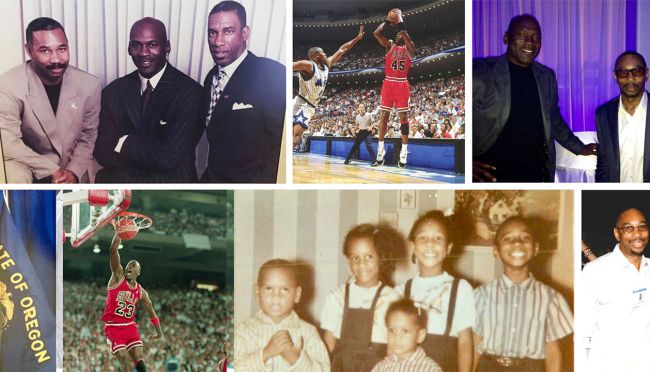Fairness →
→

- 01 Jun 2023
- HBS Case
A Nike Executive Hid His Criminal Past to Turn His Life Around. What If He Didn't Have To?
Larry Miller committed murder as a teenager, but earned a college degree while serving time and set out to start a new life. Still, he had to conceal his record to get a job that would ultimately take him to the heights of sports marketing. A case study by Francesca Gino, Hise Gibson, and Frances Frei shows the barriers that formerly incarcerated Black men are up against and the potential talent they could bring to business.

- 07 Jul 2021
- Book
Good News for Disgraced Companies: You Can Regain Trust
Companies skilled at building trust focus on four key elements, say Sandra Sucher and Shalene Gupta in their book, The Power of Trust. Open for comment; 0 Comments.

- 01 Jun 2020
- Working Paper Summaries
Spreading the Health: Americans' Estimated and Ideal Distributions of Death and Health(care)
Across varying political ideologies and income levels, Americans both underestimate the current extent of inequality of mortality and healthcare, and prefer each to be more equally distributed.

- 17 Dec 2018
- Research & Ideas
Women Receive Harsher Punishment at Work Than Men
Women caught in misconduct were 20 percent more likely to be fired and 30 percent less likely to find new employment in the financial services industry, reports new research by Mark Egan and colleagues. Open for comment; 0 Comments.

- 17 Nov 2017
- Working Paper Summaries
Equity Concerns Are Narrowly Framed
This paper based on a large online study finds that individuals tend to differentiate in their concerns about fairness along specific dimensions, especially time and money, and are much more worried about fairness in one (time) than the other (money). These attitudes may help explain a seemingly wide variety of phenomena.
- 31 Oct 2011
- Research & Ideas
The Most Powerful Workplace Motivator
When evaluating compensation issues, economists often assume that both an employer and an employee make rational, albeit self-interested choices while working toward a goal. The problem, says Assistant Professor Ian Larkin, is that the most powerful workplace motivator is our natural tendency to measure our own performance against the performance of others. Open for comment; 0 Comments.
- 05 May 2011
- What Do You Think?
How Ethical Can We Be?
Summing Up Managers like to think they act ethically, but at the end of the day ethical action is subjective, readers tell Jim Heskett. Reaction to the new book Blind Spots. Closed for comment; 0 Comments.
- 25 Oct 2006
- Op-Ed
Fixing Executive Options: The Veil of Ignorance
Who says you can't rewrite history? Dozens of companies have been caught in the practice of backdating options for top executives. But this is only part of the problem with C-level compensation packages, which often motivate top executives to act in their own best interests rather than those of shareholders. Professors Mihir Desai and Joshua Margolis turn to philosopher John Rawls for a solution: Reward the execs, but don't give them the details. Key concepts include: Too often executive incentive packages are not aligned with the best interests of shareholders. Why create long-term value if your bread is buttered by quarterly performance? Option compensation could be restructured to ensure that managers were aware of the value of their compensation without any knowledge of the details of their compensation—a concept inspired by philosopher John Rawls' work on distributive justice. These options may only be useful for CEOs, senior officers, and directors—not middle management. Closed for comment; 0 Comments.

How Should Meta Be Governed for the Good of Society?
Julie Owono is executive director of Internet Sans Frontières and a member of the Oversight Board, an outside entity with the authority to make binding decisions on tricky moderation questions for Meta’s companies, including Facebook and Instagram. Harvard Business School visiting professor Jesse Shapiro and Owono break down how the Board governs Meta’s social and political power to ensure that it’s used responsibly, and discuss the Board’s impact, as an alternative to government regulation, in the case, “Independent Governance of Meta’s Social Spaces: The Oversight Board.”